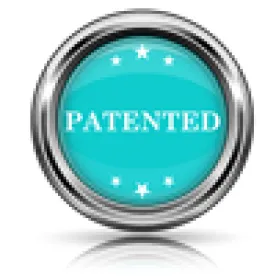Although the U.S. Court of Appeals for the Federal Circuit has held that the U.S. Patent and Trademark Office Patent Trial and Appeal Board has the authority to use the broadest reasonable interpretation claim construction standard, on June 16, 2015, it reversed and remanded several Board claim constructions on the basis that they are overly broad or unreasonable. See Microsoft Corp., v. Proxyconn, Inc., No. 2014-1542, -1543 (Fed. Cir. June 16, 2015).
This decision is significant both for what it holds and for what it expressly does not decide. It also is significant because it is the first Federal Circuit decision reversing the Board on an issue that some believed the Federal Circuit would not address, given the large number of Board appeals now before the Court and the limited judicial resources. The Federal Circuit frequently utilizes Rule 36, summarily affirming the Board without a written decision. Many have predicted that the Federal Circuit would use this Rule often to affirm decisions from the new Board trial proceedings, especially for claim construction determinations. While the Federal Circuit has utilized Rule 36 frequently in recent PTAB cases, this case demonstrates that the judges will overturn Board decisions when legal errors are made, giving new hope to patent owners seeking to appeal the cancellation of their claims.
In Microsoft Corp., v. Proxyconn, Inc., the Federal Circuit held that “[b]ecause we are bound by the decision in Cuozzo, we must therefore reject Proxyconn’s argument that the Board legally erred in using the broadest reasonable interpretation standard during IPRs.” Recognizing that there are limits to the broadest reasonable interpretation standard, the court further explained, “[t]hat is not to say, however, that the Board may construe claims during IPR so broadly that its constructions are unreasonable under general claim construction principles.” Particularly instructive is the court’s statement that in addition to the specification, the Board should “consult the patent’s prosecution history,” which is contrary to the popular belief that consideration of the prosecution history is unnecessary when giving claims their broadest reasonable interpretation. Relying on these principles, the Federal Circuit vacated several of the Board’s unpatentability determinations on the basis that the claim constructions were “unreasonably broad.”
The Federal Circuit affirmed the Board’s denial of Proxyconn’s motion to amend claims, finding that “[r]equiring the patentee to establish that its substitute claims are patentable over prior art of record does not run afoul of” the Patent and Trademark Office regulations setting forth the specific requirements for claim amendments. Many have wondered whether the Federal Circuit would uphold the Board’s expanded requirements for claim amendments in Idle Free Systems, Inc. v. Bergstrom, Inc., IPR2012-00027 (June 11, 2013). Although the court affirmed the requirement that the patent owner must show that the amended claims are patentable over the prior art “of record” in the proceeding, it specifically noted that “this case does not call on us to decide whether every requirement announced by the Board in Idle Free constitutes a permissible interpretation of the PTO’s regulations.” The court noted, for example, that it was not addressing “Idle Free’s requirement that the patentee . . . show patentable distinction over all ‘prior art known to the patent owner.’” This reservation gives fresh optimism to patent owners who have appealed or desire to appeal a Board denial of a motion to amend on this basis.




 />i
/>i

